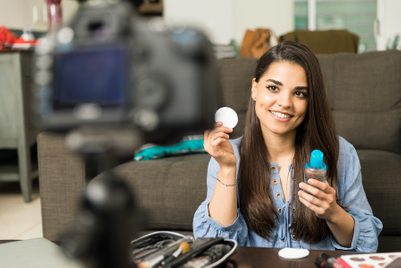
The British company introduced Dettol, Veet, Finish, Vanish, and Durex into the Chinese market upon entry but was very unsuccessful for a number of years, as Aditya Sehgal, senior vice-president cum regional director for North Asia at Reckitt-Benckiser China, told Campaign Asia-Pacific in an exclusive interview.

Reckitt Benckiser has more than 100 brands globally. However, the company's global model of TV advertising does not work in China because television rates are "prohibitively expensive", he said. "This made us stand back two years ago and think about how to change our model so we can survive and grow. We have transformed our marketing model to a TV plus digital one."
The crux of RB's digital strategy is content, content, content. Key dates like Valentine's Day are joined by many more strategic dates in Durex's comprehensive 52-week social content calender. Even less known ones like World Sleep Day on 19 March, Earth Hour on 26 March and Youth Day on 7 May are tailored with content blasts to educate its 1.9 million Chinese fans on "how to make the most of your hour of darkness" or "how important first-time sex is for future enjoyment", with nary a mention about 'protection' or 'contraception' typical in sexual education taught in schools.
On average, every Weibo entry is reposted 499 times, forwarding content such as the 'Smurfs' jingle rewritten with sexual innuendos or the 100 funny uses of Durex condoms (one is how to wear two condoms on one's feet as "rubber boots" during a rainy day). "It's not about advertising anymore, it's about story-telling," he said. "With boundaries, of course. We can't be obscene, sexist, judgmental, or racist."
All topics are linked to the brand purpose of Durex, which are then amplified via a KOL strategy. Key opinion leaders on Weibo are identified and monitored, whom Durex will customise a branded gift that appeals to them, deliver it, and follow up on their Weibo responses. Each such post goes down to 12 layers in the Weibo eco-system, he stated.
"Digital is more important than television, it's all been proven and nothing to prove," Sehgal said. "Digital is so mission-critical that we need to have top management involved," he added, referring to himself. China's digital world has led the company to "enormous opportunities" through various platforms on paid, owned and earned media.
Online ad spending in China increased 24.3 per cent in 2011 to $4.6 billion and will reach $6.2 billion on 34.8 per cent growth this year, according to eMarketer data.
"Consumers are multi-tasking and watching more digital screens, but not at the expense of television," he said. "So it's still very important to have TV ads, but we are leveraging digital as well." In digital marketing, most old-world marketers are not looking at advocacy as a KPI though, Sehgal observed.
"Advocacy is the ultimate goal; after the stages of awareness, engagement and then purchase," he said. "Even though causality is not clear-cut, purchases will lead to advocacy and vice versa." The correct mindset? Let go of control of your brand, and make it the consumers' own brand which they hold an emotional stake in. "In the case of Durex, the long-term brand purpose is to improve the sexual health of consumers, and whether sales numbers increase is not my concern in the short term," he said. "I am in social media to make friends, not to sell. There is no ROI of a friend."
Just like one cannot measure ROI of a friend, digital tracking and analytics is not meant to prove ROI of a viral video campaign for instance, but to optimise it, he said.
On the official Weibo enterprise accounts of RB's fleet of household brands, between 3.5 to ten pieces of content are created and seeded every day through partnerships with digital agencies and independent KOLs to tackle current consumer perceptions or challenges by giving advice—like a friend would.
For Veet, Chinese women think they have no body hair and thus have less need for waxing. For Finish, dishwashers are not widely used in China to enable frequent usage of the detergent. For Dettol, mothers worry that their kids do not wash their hands as well as they can. For Vanish, the stain-remover market is still too niche and underdeveloped. For Durex, condom penetration is only 11 per cent in the mainland against competitors like Okamoto.
For these brands, e-commerce presence on Dangdang and Taobao is one of the top three sales drivers for Reckitt Benckiser, together with retail convenience stores and supermarket checkout counters.
The RB team also recently completed mobile brand sites for its Durex and Dettol brands with the same planned for Veet, Finish, and Vanish. Under development are also a set of mobile applications. Other digital initiatives include SEO and SEM investments for most RB brands except Finish.
“Within Reckitt-Benckiser, we have low-involvement brands like Finish, and sexy ones like Durex," Sehgal said. "People think it is easy for a sexy brand like Durex to be creative, but even if your brand is not very sexy, you can still produce creative content. The key is to have relevance, context, and emotional impact."
An example was when RB seeded different viral videos for Durex and Finish on the same day (Children’s Day this year), but saw five times the number of views for the Finish video, simply because it struck a deeper emotional chord with a family theme where kids were asked what presents they would like for Children's Day, and their hopes for their mummies and daddies to accompany them more.
"Weibo marketing is like standing along the seaside," Sehgal said. "I don't know how each wave will fall on the beach, but I can predict the tide in general. Similarly, I can't say how much buzz each Weibo post is worth, but overall I know I will get 300 million impressions per month. This is the new-school way of social-media marketing."
Lessons from real-time social listening are fed back into future content calendars. And looking to the future, the household goods MNC plans to introduce 19 new brands into China by 2020, with a forecast of sales to expand tenfold to $1.57 billion. The priorities are on the health and hygiene segments, followed by household, revealed Sehgal.
"Chinese consumers are very pragmatic and care a lot about 'face'. What this means is that they are willing to pay the right level of premium prices for the beauty or health categories, but when it comes to something that is going to go under the sink [like a disinfectant product], they won't," he explained.



.jpg&h=334&w=500&q=100&v=20250320&c=1)


.jpg&h=334&w=500&q=100&v=20250320&c=1)


.jpg&h=334&w=500&q=100&v=20250320&c=1)



+(1).jpg&h=268&w=401&q=100&v=20250320&c=1)





